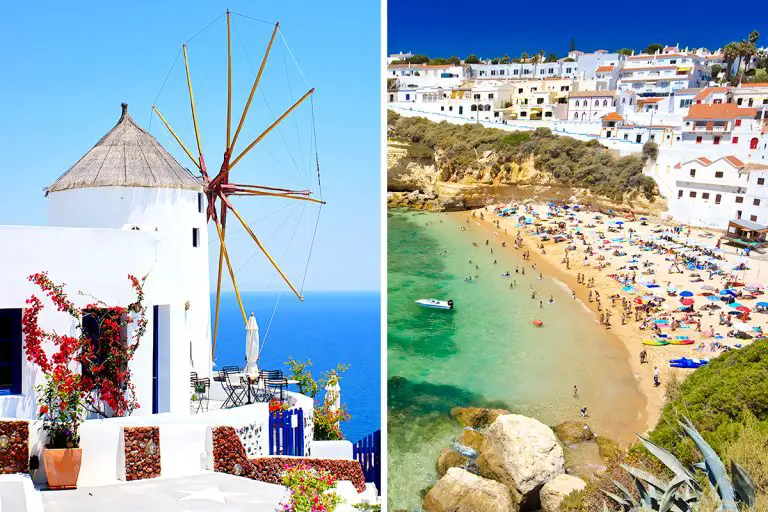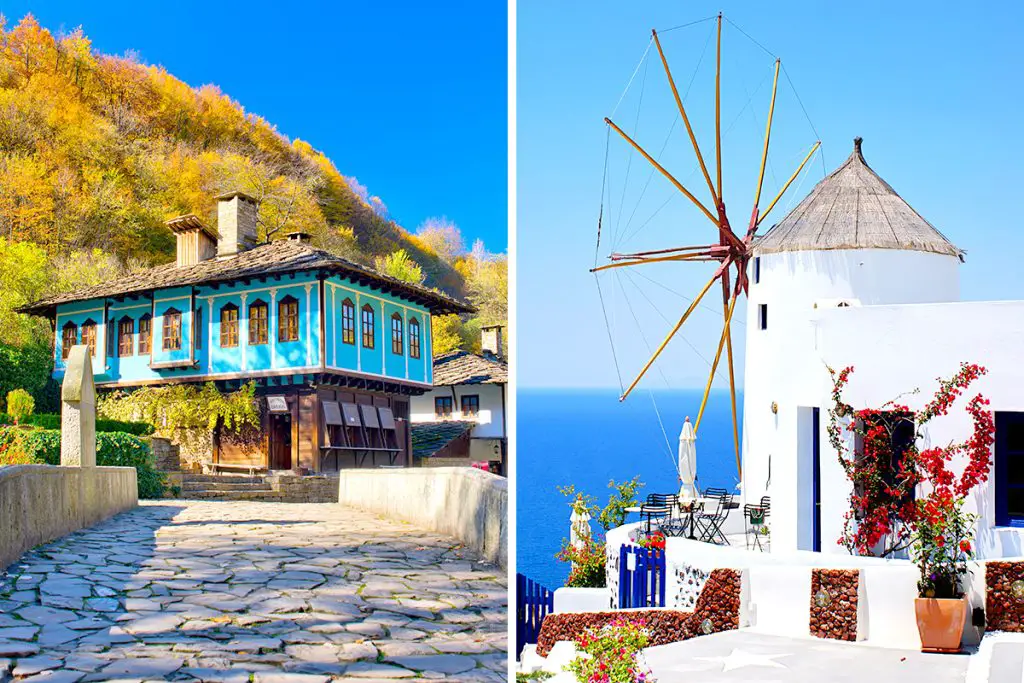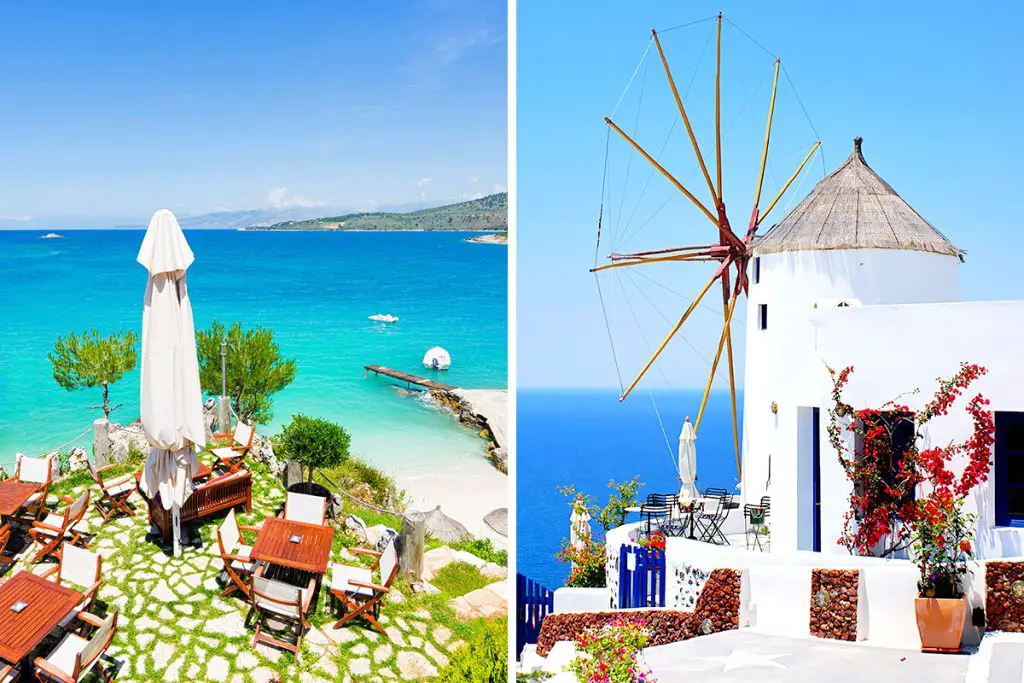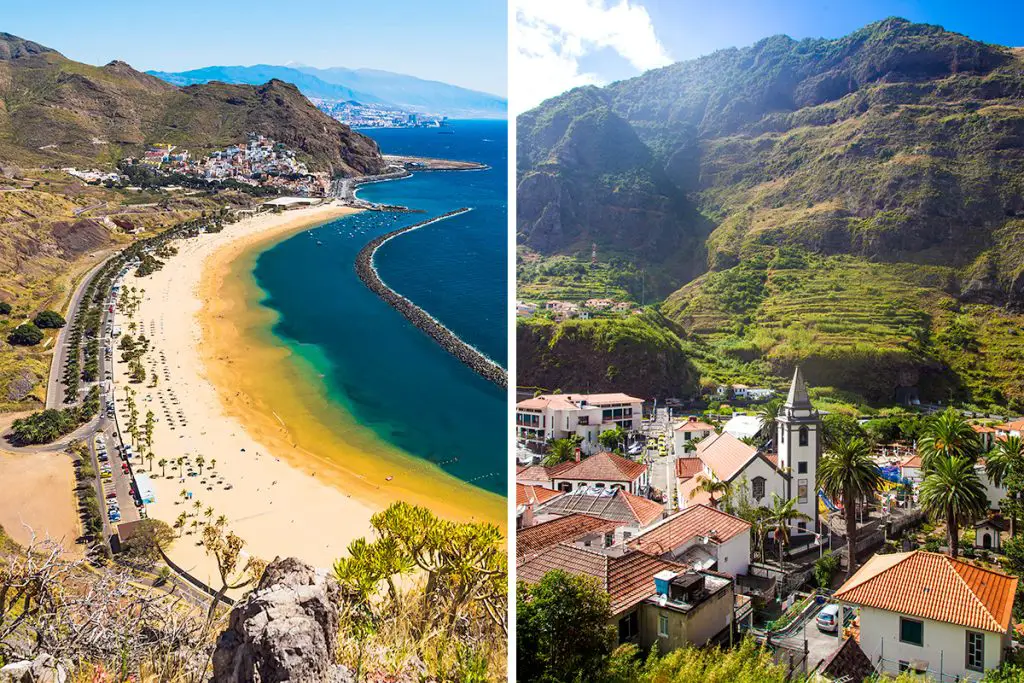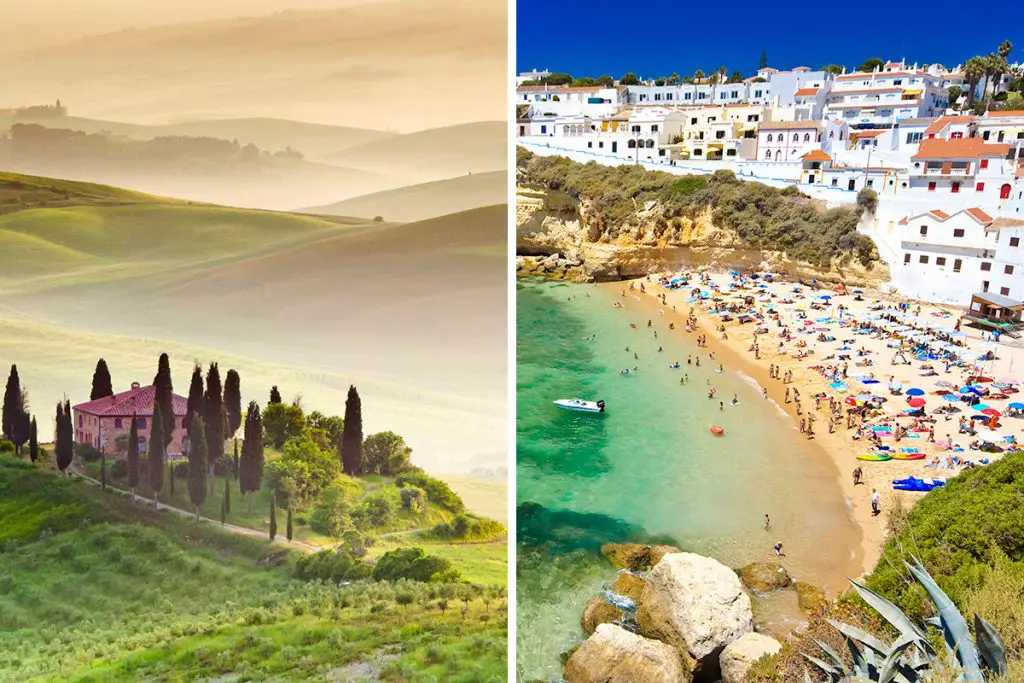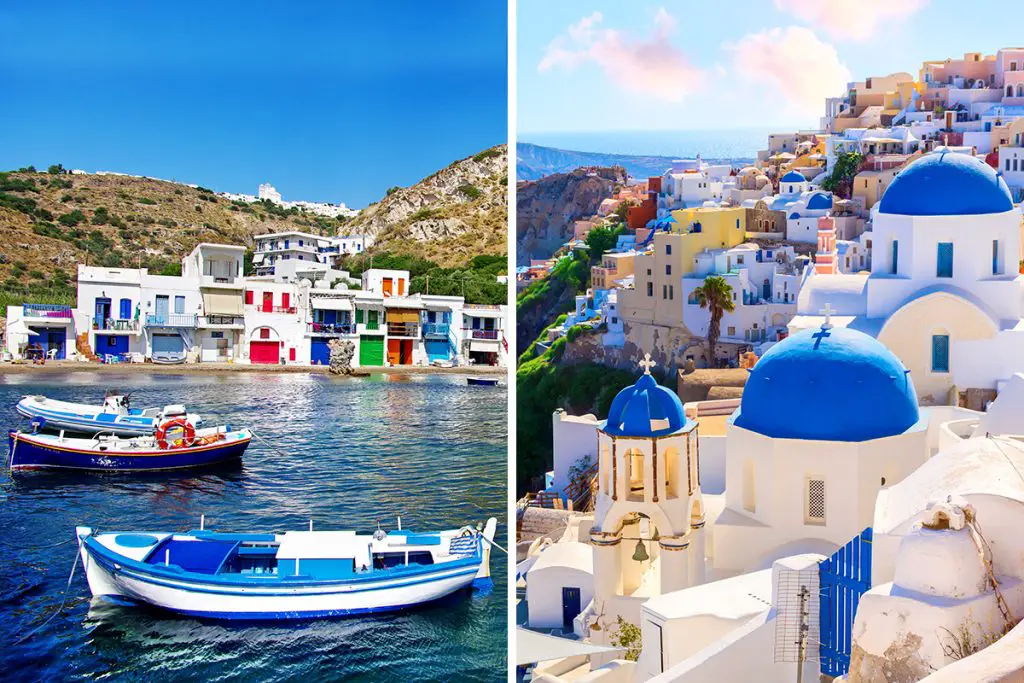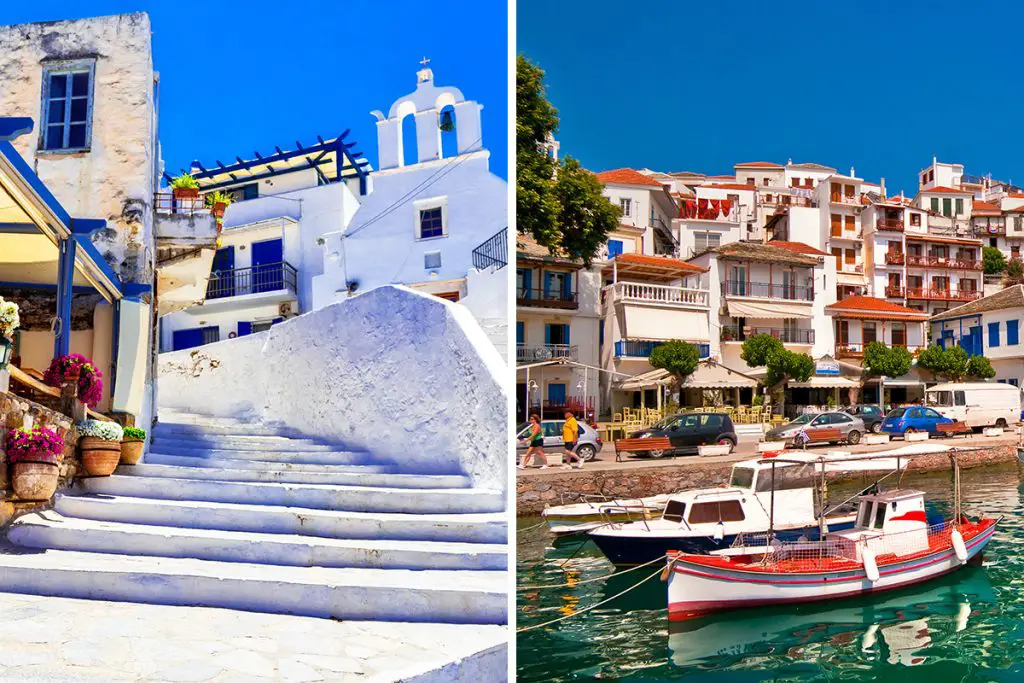It’s the quintessential traveler’s dilemma, isn’t it? You’re eager to dive into ancient mythology or sail through maritime tales, explore bustling cities or find solace in quaint villages. Greece and Portugal each hold their own charms and mysteries, just waiting for you to uncover. Intrigued? Read on, as we delve into the captivating realms of these two destinations.
History & Culture
The past lives on vibrantly in both Greece and Portugal, each having a unique narrative to share. Embarking on a journey through these countries is like thumbing through a well-loved book, filled with thrilling stories of gods, heroes, explorers, and artists.
The culture of Greece is deeply rooted in its ancient history. Here, every stone has a tale to tell. It’s the birthplace of democracy, philosophy, and the Olympic Games. The Greek legacy is filled with legendary gods and epic heroes, their stories etched in every corner of the country.
You’ll feel a sense of awe as you walk through the remnants of ancient civilizations, such as Athens and Delphi, and understand the enduring influence of their ideas in today’s world.
On the flip side, Portugal’s history is a blend of influences from various civilizations that left their mark on the country. From the Celts and Romans to the Moors and Christians, each group contributed to the rich tapestry of Portuguese culture.
Portugal is renowned for its Age of Discoveries when it was a global maritime power, discovering new lands and establishing trade routes. The echoes of this era are still evident in Portugal’s architecture, traditions, and its people’s love for the sea.
Culture is the soul of a nation, and both Greece and Portugal wear theirs proudly. Greek culture is synonymous with hospitality, a trait that’s deeply embedded in their psyche. The Greeks’ love for life and passion for their history is infectious, and you’re sure to feel welcomed like an old friend.
Portuguese culture, on the other hand, is marked by a profound sense of saudade, a unique word encapsulating a feeling of longing and nostalgia. This is reflected in their traditional music, Fado, which often tells stories of the sea, love, and longing. You’ll find the Portuguese to be friendly, warm-hearted people who cherish their traditions and their past.
In essence, the choice between Greece and Portugal is like choosing between two fascinating stories. Greece, with its ancient myths and philosophical roots, and Portugal, with its maritime history and sense of longing, offer two distinct, yet equally captivating narratives. It’s a tough choice indeed, but remember, the best journeys are those that resonate with your heart. So, which of these two vibrant cultures calls out to you?
Attractions & Activities
Ready to step into a world of wonder? Greece and Portugal both offer a treasure trove of attractions and activities that will make your vacation unforgettable. But what sets these two apart?
In Greece, you’ll find yourself journeying back in time. The Acropolis in Athens, a UNESCO World Heritage Site, is a must-visit. These ancient ruins, including the iconic Parthenon, will give you a peek into Greece’s glorious past.
Another gem is the Delphi Archaeological site, once considered the center of the world by ancient Greeks. Here, you can explore the Temple of Apollo and imagine the oracles predicting the future.
But Greece isn’t just about ancient ruins. You can also find peace in the serene monasteries of Meteora, perched atop towering rock formations. Or perhaps take a stroll around the old town of Rhodes, a charming place with narrow streets and medieval architecture. Don’t miss the stunning sunset views from Oia village in Santorini – it’s a sight that will stay with you forever.
Portugal, meanwhile, offers a different flavor of attractions. In Lisbon, you can’t miss the Belém Tower and Jerónimos Monastery, both UNESCO World Heritage Sites reflecting the country’s Age of Discoveries.
The city of Porto also demands a visit, with its stunning Ribeira district and the iconic Dom Luis I Bridge. Remember to visit Sintra, too, where you’ll find the colorful Pena Palace and the mysterious Quinta da Regaleira.
Adventurous souls will find Portugal’s Douro Valley irresistible. This region, known for its terraced vineyards, offers fantastic hiking opportunities. You can also explore Portugal’s natural beauty in the Peneda-Gerês National Park or gaze in wonder at the dramatic cliffs of Cabo da Roca, the westernmost point of mainland Europe.
In a nutshell, both Greece and Portugal offer a mix of historical sites, natural beauty, and unique attractions. Greece might draw you in with its ancient ruins and breathtaking landscapes, while Portugal’s blend of history, architecture, and nature could captivate your heart. It all depends on the kind of adventure you’re seeking. Ready to explore?
Beaches
Now, let’s talk about the icing on the cake of any Mediterranean vacation – the beaches. Both Greece and Portugal are blessed with some of the world’s most beautiful coastlines. But what makes each one special?
Greece is famous for its idyllic islands and stunning beaches. Take, for example, the beach of Elafonisi in Crete. With its soft pink sand and crystal-clear waters, it’s like stepping into a dream. The beach is about 0.6 miles (1 km) long, giving you plenty of space to relax and soak up the sun.
Then there’s Navagio Beach on Zakynthos Island, also known as Shipwreck Beach. This secluded cove, only accessible by boat, is famous for its turquoise waters and the dramatic shipwreck lying on its white sandy shore. The beach is small, only around 0.1 miles (0.16 km) long, but it’s big on beauty and adventure.
Over in Portugal, you’ll find a different kind of beach charm. Praia da Marinha in the Algarve is a must-visit. Known for its towering cliffs and rock formations, this beach offers stunning views and crystal-clear waters for swimming. The beach stretches about 0.6 miles (1 km), with beautiful walking trails nearby.
Praia de Miramar, near Porto, is another gem. Here, you’ll find a wide sandy beach with a quaint chapel, Senhor da Pedra, right on the shore. This beach, about 0.5 miles (0.8 km) long, is perfect for a leisurely walk with the Atlantic waves as your soundtrack.
In summary, Greece’s beaches are a paradise for those seeking crystal-clear waters and a taste of island life. On the other hand, Portugal’s beaches stand out with their dramatic landscapes and varied coastline. Whether it’s the serene tranquility of a Greek island or the rugged beauty of Portugal’s Atlantic coast, the perfect beach is waiting for you. So, which one will you choose for your next beach holiday?
Eating, Drinking & Nightlife
Get ready to dive into the vibrant flavors and lively nightlife of Greece and Portugal. Both countries have their unique gastronomic delights and lively evening scenes. Let’s explore what each has to offer.
When it comes to food, Greece is a true paradise. Imagine feasting on fresh seafood, succulent grilled meats, and colorful salads drizzled with olive oil. You can’t miss the classic Greek salad, moussaka, and souvlaki. And for dessert? How about some sweet baklava or creamy Greek yogurt topped with honey and nuts?
In Portugal, your taste buds are in for a treat too. You’ll savor dishes like piri-piri chicken, bacalhau (salted cod), and pasteis de nata – a sweet custard tart that’s hard to resist. Don’t forget to try caldo verde, a hearty kale and potato soup that’s a Portuguese favorite.
Now, let’s talk about drinks. In Greece, you can’t miss trying ouzo, an anise-flavored liquor that’s a local favorite. And if you’re a wine lover, the vineyards of Santorini produce some exceptional white wines.
Portugal, on the other hand, is famous for its port wine. You should definitely visit the cellars in Porto for a tasting. If you’re more into cocktails, try a ginjinha, a cherry liqueur that’s both sweet and strong.
As for nightlife, Greece is well known for its energetic scene. In cities like Athens and Thessaloniki, you’ll find bustling bars and nightclubs where you can dance the night away. The islands of Mykonos and Ios are also famous for their vibrant parties.
Portugal’s nightlife, while a bit more laid-back, is equally enjoyable. In Lisbon and Porto, you can find bars with live music, especially Fado, the soulful music of Portugal. Bairro Alto in Lisbon is particularly famous for its lively evening scene.
In conclusion, whether you’re a foodie, a drink enthusiast, or a night owl, both Greece and Portugal have plenty to offer. So, are you ready to indulge in delicious flavors, savor unique drinks, and dance the night away in these beautiful countries?
Shopping
Shopping in Greece and Portugal is like opening a treasure box. Both countries have a rich array of local products and unique souvenirs to take home. Let’s see what you can find.
In Greece, you’ll find beautiful handmade ceramics, traditional Greek sandals, and high-quality olive oil. You can also find beautiful jewelry inspired by ancient Greek designs. And don’t forget to pick up some Greek honey or ouzo to remind you of the delicious flavors of Greece.
Portugal, on the other hand, is famous for its beautiful azulejos (hand-painted tiles). These make a unique and beautiful souvenir. You can also find high-quality leather goods, handmade cork products, and beautiful pottery. And for a taste of Portugal at home, why not buy some port wine or pasteis de nata mix?
Both countries have bustling markets where you can soak up the local atmosphere. In Greece, the Monastiraki Flea Market in Athens is a must-visit. In Portugal, don’t miss the Mercado da Ribeira in Lisbon, where you can find a wide array of local products.
In conclusion, shopping in both Greece and Portugal offers a wonderful opportunity to discover local craftsmanship and bring a piece of your vacation home with you. So, are you ready to explore the markets and shops of these beautiful countries?
Accommodation
Finding the perfect place to stay is an essential part of your vacation planning. Whether you’re looking for a beachfront villa, a city-center hotel, or a countryside retreat, both Greece and Portugal have an abundance of options to suit your needs.
In Greece, you’ll find a wide range of accommodations. From luxury hotels in Athens to quaint villas on the islands of Mykonos and Santorini, there’s something for every taste and budget. Traditional Greek homes, known as “domatia,” offer a unique and authentic stay experience.
Portugal, too, boasts a diverse range of accommodations. The capital city, Lisbon, offers stylish boutique hotels, while Porto is known for its charming guesthouses. For a more unique experience, you can stay in a “quinta,” a traditional Portuguese farmhouse, in the Douro Valley.
For a seaside vacation, both countries offer excellent choices. In Greece, beach resorts on islands like Crete and Rhodes offer stunning sea views. In Portugal, the Algarve region is known for its luxury beach resorts.
In conclusion, whether you prefer luxury, tradition, or natural beauty, you’ll find an accommodation option in Greece or Portugal that fits the bill. So, where would you like to rest your head after a day of exploring?
Family-Friendliness & Children’s Activities
Traveling with family is a joy, and both Greece and Portugal are fantastic destinations for a family vacation. Each country offers plenty of fun and educational activities for kids.
In Greece, children can explore ancient history firsthand by visiting sites like the Acropolis. Many museums in Greece also offer interactive exhibits for kids. For a day of fun, check out the Attica Zoological Park in Athens, which houses over 2000 animals.
In Portugal, you can visit the Oceanário de Lisboa, one of Europe’s largest indoor aquariums. The country also boasts several fun theme parks, like the Zoomarine Algarve, where kids can enjoy water rides and watch dolphin shows.
Both Greece and Portugal offer beautiful and safe beaches where kids can build sandcastles, swim, and play. Plus, the warm and welcoming culture in both countries makes families feel right at home.
In summary, whether your family loves history, wildlife, or just having fun in the sun, Greece and Portugal are sure to provide unforgettable memories. So, which one will be your next family vacation destination?
Getting There & Getting Around
Planning your journey to and around Greece and Portugal is a breeze. Both countries are well connected and offer various modes of transport to suit your travel needs.
Getting to Greece from the U.S. usually involves a flight to Athens, which takes about 10-12 hours. From the UK, it’s much quicker, with flights to Athens taking around 3.5-4 hours.
To get to Portugal, flights from the U.S. to Lisbon take around 6-7 hours. If you’re traveling from the UK, you can reach Lisbon in about 2.5 hours.
Once you’re in Greece, you can travel around by train, bus, or ferry. The country’s extensive ferry network makes island hopping easy and fun. In the cities, taxis and metro systems make getting around straightforward.
In Portugal, the train and bus networks are efficient and cover most of the country. For getting around cities like Lisbon and Porto, trams and buses are convenient. And of course, you can always rent a car if you prefer to explore at your own pace.
In conclusion, whether you’re crossing oceans or just hopping from one city to another, traveling to and around Greece and Portugal is smooth and easy. Ready to start your journey?
Weather
The weather can greatly influence your travel experience. Both Greece and Portugal offer Mediterranean climates, but there are some differences that might sway your decision.
Greece experiences hot, dry summers and mild winters. In the summer months of June to August, temperatures in Greece can reach up to 86°F (30°C), making it perfect for beach-goers. During winter, from December to February, the temperature averages around 54°F (12°C), still mild and pleasant.
On the other hand, Portugal has a slightly cooler summer and a wetter winter. During the summer, from June to August, temperatures average around 82°F (28°C), making it a bit more comfortable. Winter months, from December to February, can be wet, especially in the north, with temperatures around 50°F (10°C).
Both countries offer different experiences throughout the year. In Greece, you can enjoy warm weather most of the year, making it ideal for sunseekers. Portugal’s slightly cooler summers can be more comfortable, and the rainy winters give a unique charm to its cities.
In conclusion, whether you want to soak up the sun or enjoy a cooler and more relaxed vacation, both Greece and Portugal have you covered. So, where will you enjoy your perfect weather?
Safety
When you’re traveling, safety is an important factor. Both Greece and Portugal are considered safe countries for tourists, but they each have their unique considerations.
In Greece, crime rates are relatively low, especially in the more touristy areas. However, like in any busy city, petty crimes like pickpocketing can happen, so it’s important to keep an eye on your belongings.
Portugal is also a safe destination. It consistently ranks as one of the safest countries in the world. But again, petty crime can occur in crowded areas, so stay vigilant.
One unique aspect to consider in Greece is its terrain. The country’s mountainous landscape and the steep steps in towns like Santorini require some caution, especially if you’re traveling with kids or have mobility issues.
In Portugal, a unique consideration is the ocean currents. The country’s beautiful beaches can have strong currents, so it’s important to heed local advice when swimming.
In summary, both Greece and Portugal are safe destinations for your vacation. Remember to exercise the usual caution, and you’ll have a great time. Ready to explore?
Cost
Planning your budget is a key part of your travel preparations. Both Greece and Portugal offer value for money, but there are some differences in costs.
Generally, Greece is considered a more affordable destination than Portugal. For example, a meal at a mid-range restaurant in Greece might cost you around 15 euros ($17), while in Portugal, it could be closer to 20 euros ($23).
Accommodation costs can vary greatly depending on where you stay, but you can generally find a decent hotel room in Greece for around 50 euros ($57) per night. In Portugal, a similar room might cost around 60 euros ($68).
Transportation costs are also generally lower in Greece. A one-way ticket on local transport costs around 1.40 euros ($1.60) in Greece, compared to 1.50 euros ($1.70) in Portugal.
However, Portugal offers great value in certain aspects. For example, the country is known for its affordable and high-quality wines. A bottle from a supermarket can cost as little as 3 euros ($3.40).
In conclusion, both Greece and Portugal can offer a great vacation without breaking the bank. It all depends on your personal preferences and budget. So, where will your money take you next?
Which Is Better – Greece or Portugal?
In the realm of history and culture, both Greece and Portugal leave you in awe. You’ll find deep historical roots and vibrant cultures in both destinations. Greece, with its ancient ruins and mythology, may appeal more to history buffs, while Portugal’s unique blend of traditions and modern vibes may captivate those seeking a fusion of old and new.
When it comes to attractions and activities, your choice depends on your preferences. Greece’s iconic monuments and ruins, along with thrilling outdoor activities, promise an unforgettable adventure. Portugal, with its diverse landscapes, historical sites, and exciting city life, ensures an eclectic mix of experiences.
The beach scene differs in each country as well. Greece’s beaches, with their turquoise waters and golden sands, are perfect for those seeking the ultimate sun and sea experience. Portugal, with its varied coastline, offers a mix of sandy beaches and rocky coves that cater to both sunbathers and surfers.
Foodies would enjoy both destinations, each offering a unique culinary journey. Greece’s hearty meals and world-renowned olive oil might win over food lovers, while Portugal’s fresh seafood and famous pastries could tempt those with a sweet tooth.
As for nightlife, Greece’s vibrant party scene might suit those looking for a lively time, whereas Portugal’s more relaxed and diverse night scene could be just right for those seeking a laid-back evening.
As far as accommodations go, both countries offer a wide range of options to suit various budgets. Portugal’s accommodations tend to be a bit pricier than Greece’s, but both countries offer excellent quality and service.
In the end, the choice between Greece and Portugal comes down to what you value most in your travel experience. Greece’s rich history, stunning beaches, and vibrant nightlife might be ideal for history buffs and party-goers. On the other hand, Portugal’s diverse attractions, unique culinary scene, and relaxed vibe might be just the ticket for food lovers and those seeking a laid-back holiday. So, which country will be your next destination – Greece or Portugal?

